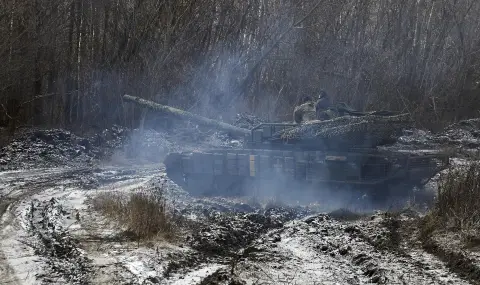Almost three years after the start of the full-scale war in Ukraine, the conflict continues to claim victims, cause massive destruction and leave deep wounds on society. Thousands of people have lost their lives, families have been separated, and the country's economy and infrastructure are in ruins. This was stated today at a press conference in Geneva by Philippe Leclerc, director of the regional office of the United Nations High Commissioner for Refugees (UNHCR) for Europe, quoted by BTA.
Over the past six months, more than 200,000 people have fled their homes in eastern Ukraine due to escalating attacks. As human suffering continues, immediate humanitarian assistance and long-term support for recovery are needed more than ever, Leclerc stressed.
According to UNHCR, 10.6 million Ukrainians have been displaced - almost a quarter of the country's pre-war population. Of these, 3.7 million are internally displaced and 6.9 million have sought refuge abroad. More than 2 million homes - around 10% of the housing stock - have been partially or completely destroyed.
Ongoing attacks on energy infrastructure are leaving people without heat and electricity, straining already overstretched local services. The most vulnerable are the elderly and people with disabilities, who face serious difficulties in accessing essential services.
The situation for children is particularly worrying - 1.5 million are at risk of long-term mental health consequences. Inside the country, 12.7 million people, a third of the population, are in urgent need of humanitarian assistance.
In addition to the human toll, the war is taking a heavy toll on the economy. Up to a third of Ukraine’s territory is estimated to be contaminated with mines and munitions, and industrial and agricultural areas in the east have been devastated. Nearly 30% of pre-war jobs have been lost. According to the UNHCR, these challenges are preventing refugees from returning and should be a priority in recovery efforts.
Over the past three years, Ukraine’s neighboring countries have shown empathy by integrating refugees into their social systems. While 60% of Ukrainians abroad say they want to return to their homeland, only 5% plan to do so in the near future. Most of them come from occupied areas and need security, stable housing conditions and economic prospects in order to return.
In Bulgaria, in 2024, the government granted or renewed temporary protection to about 75,000 Ukrainian refugees, two-thirds of whom are women and children, and one-fifth - the elderly or people with disabilities. Due to the insecurity in Ukraine, many of them plan to stay in the country for a longer period.
In response to this situation, UNHCR and its partners are focusing their efforts on the long-term integration of refugees. Key priorities include ensuring access to employment, education, language training and social protection, as well as supporting national systems that are under increasing strain.
